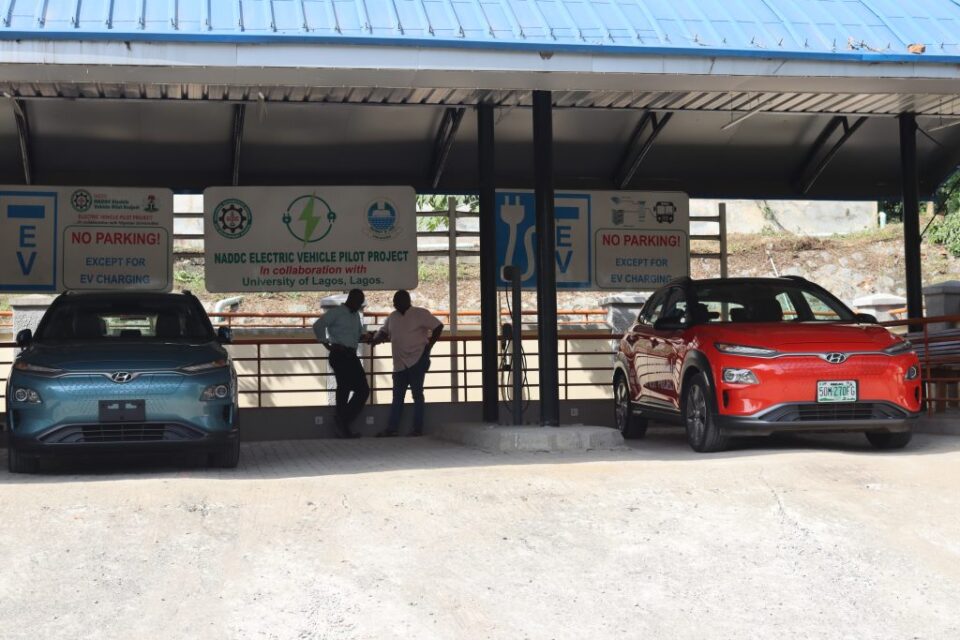By Chesa Chesa
As the Federal Government and the private sector gradually embrace and push the agenda for mass use of electric vehicles, electromobility (e-mobility) experts have convened in Abuja to recommend how the advantages can easily and quickly benefit the nation, especially rural Nigeria.
The experts gathered to rub minds recently at the 88th Power Dialogue, titled “The Future of E-Mobility in Nigeria”, which discussed the feasibility of e-mobility in Nigeria in terms of accessibility, affordability, and market interest. It was hosted by The Electricity Hub (TEH), a subsidiary of the Nextier Group.
Among the e-mobility experts who constituted the panelists were Michael Olugbemi, Program Manager and Chief Executive of the recently inaugurated Presidential CNG Initiative (PCNGi); Adepegba Oduntan, Chief Operations Officer for Possible EVs; Ms. Uchenna Idoko, Executive Director of Center for Gender Economics; and Eckhard Heine, the Head of Sustainable Energy Access at Nigerian Energy Transition Plan (NESP).
They pointed out that Nigeria’s 2060 Net-Zero goal has birthed many ideas and initiatives that align with the NESP, while noting that creating a green Nigeria does not equate to electrifying Nigeria with renewable and sustainable energy but ensuring that all activities are environmentally sustainable, of which transportation is a sine qua non.
On the possibility of electric vehicles adoption in Nigeria, Oduntan emphasized that Nigeria’s petroleum and gas crises call for the development of e-mobility so as to maximize the opportunity for both the urgent need for energy transition and the energy crises in Nigeria.
He also stressed the importance of partnership between the public and private sectors to create an enabling environment in terms of creating industry catalysation to support the development of e-mobility in Nigeria.
According to Oduntan, while the public sector enables e-mobility to thrive, the private sector will drive profit creation even as he stressed that information dissemination is necessary because many don’t know how affordable electric vehicles are in the long run.
He added that building skills is necessary to retain suitable and convenient market in Nigeria, and that international collaboration and funding through direct foreign investments and the government is necessary.
In his intervention, Olugbemi underscored the feasibility of e-mobility in Nigeria, which is why government is trying to introduce 10,000 three-wheelers and 100 buses, being electric vehicles to explore alternative mass transportation.
He said this initiative would be the largest in Africa and the vehicles would be locally assembled to support skills development in Nigeria.
Olugbemi disclosed that the PCNGi is currently working with Possible EVs and other stakeholders, and pointed out that the National Transportation Policy has the rural economy at heart, so they are currently working with agricultural logistics companies to see how diesel-fueled auto trucks can be supported.
He stated that e-mobility would change the face of transportation with impact on the agricultural sector, and more; just as it will also drive more investment and reduce the immense dependence on fossil fuels.
On the challenges of EV adoption, all panellists agreed that the common challenges are funding, available capacity development, and infrastructural development.
They recognised that Nigeria may have a partial-scale capacity, but to ensure the country fully develops the ability to manage E-Mobility, there is a need to fund infrastructure and human capital development.
Ms Idoko recognised the need for policy development to help people in rural communities, primarily to support the capacity of women and children, through sensitisation and closing knowledge-sharing gaps at the public level.
Not only can this change the face of entrepreneurship, there is an opportunity for women to contribute to the development of E-mobility, hence reducing gender inequality and increasing employment opportunities, she stated.
Idoko also highlighted a need to develop data to know how effective the created policies are in specific locations and markets in the country, she stressed collaboration with international companies to support the development of e-mobility in Nigeria.



